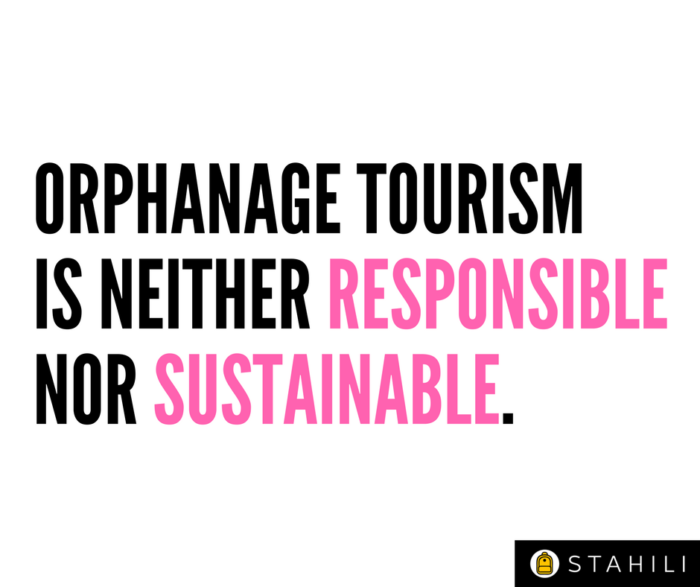Why is orphanage tourism not in the UNWTO draft convention on tourism ethics?
It is a big year for global tourism. The UN designated 2017 as the International Year of Tourism for Sustainable Development and the 156 member states of the World Tourism Organization (UNWTO) – the UN agency responsible for the promotion of responsible, sustainable and universally accessible tourism – is considering the adoption of two international conventions, including a proposed Convention on Tourism Ethics.
The Draft Convention on Tourism Ethics is largely based on the Global Code of Ethics which was adopted by UNWTO in 1999. At its centrepiece is “the universal right to tourism” which is seen as “the corollary of the right to rest and leisure.” While some child protection concerns have been recognised, the issue of “voluntourism” involving children – and particularly orphanage tourism – is not mentioned in the Draft Convention. This means that a right to tourism may be created without fully taking into account the need to protect vulnerable children from harmful tourism practices which have grown considerably since the Global Code of Ethics was first adopted 18 years ago.

Orphanage Tourism and the UNWTO
Sexual exploitation is rightly recognised in the Draft Convention as an area where children need special protection – the result of extensive consultations between UNWTO, child protection NGOs, and tourism providers. However, the potentially harmful impact of other “tourism products” involving children, such as orphanage tourism, do not seem to have received the same level of attention in the Draft Convention. At the start of the year Stahili drew attention to the need to address orphanage tourism as part of the International Year of Tourism for Sustainable Development.
Voluntourism is not new to the UNWTO. Its current campaign to promote responsible travel, launched in August, urges travellers to “research well before engaging into voluntourism”. However, there is no indication what this research should involve, and whether working with children as a volunteer in an orphanage is ethically acceptable as a form of voluntourism.
Previous references to voluntourism by the UNWTO have emphasised its business potential for the tourism sector. Prior to the launch of the current campaign, a blog post on the Tourism4Development web site acknowledged “volun-tourism” as “a marketable product and one of the fastest-growing and most lucrative sectors in the tour industry market.” The post goes on to flag child protection concerns and the risks for children.
The issue of orphanage tourism has featured in the work of the World Tourism Network on Child Protection, which is coordinated by UNWTO. Most recently, at a meeting in Berlin in March 2017, a representative of the Ministry of Hotels and Tourism of Myanmar gave a presentation on responsible tourism policy focused on preventing “orphanage and child sex tourism”. The Network’s meeting in March 2016 included a presentation by the Association of British Travel Agents which highlighted the dubious intentions of orphanage volunteering.
Orphanage tourism is neither sustainable nor responsible
Despite the relative lack of attention given to the issue by UNWTO, public awareness of the harms of orphanage tourism, its growth as an industry and its links with child trafficking, has risen sharply in recent years. Current developments in Australia, where orphanage tourism could soon be outlawed as part of a Modern Slavery Act, are just one sign of this growing international concern. A recent report by Lumos on Haiti also highlighted the negative impact of orphanage tourism in sustaining an orphanage “business” which separates children from their families.
Further signs have come from the travel and tourism industry itself. Initiatives to safeguard child protection and guidelines on voluntourism strongly discouraging orphanage volunteering have received wide support. Travel companies, such as Intrepid and Flight Centre, have stopped offering volunteer trips to orphanages. And some schools and universities have taken the pledge to stop what are known as “orphan trips”.
There is a growing consensus that orphanage tourism is neither sustainable nor responsible as a form of tourism or development aid. But despite the global concern, the new Draft Convention on Tourism Ethics makes no reference to orphanage tourism or voluntourism. Instead, the focus is mainly on the rights of tourists, tourism providers and other stakeholders in the tourism sector. The human rights provisions and protections in the Draft Convention (Article 2) are weak, especially when weighed against “the universal right to tourism”.
As the Roundtable Human Rights in Tourism – a European alliance of tourism enterprises, tourism associations and NGOs – recently stated in an open letter to UNWTO, “the focus on a right to tourism diverts attention from other human rights that are still threatened in the context of tourism, such as the right to decent work, the right to housing and the specific rights of children, women and indigenous people.” Further, the potential transformation of the Global Code into a tourism ethics convention which will be binding for member states is “hasty” and “a lost opportunity to review the code in the light of current developments in tourism as well as in the field of international policies and governance.”
Protecting children’s rights in tourism
The protection of children and children’s rights should be at the centre of tourism ethics. These rights should include the rights of children living in residential care institutions like orphanages who are frequently commodities, and rarely beneficiaries, of tourism.
Thanks to the work of advocates, researchers and child protection experts worldwide, the fight against orphanage tourism in terms of public opinion, travel and tourism practices, and even legislation, is gaining momentum. It would be a missed opportunity if one of the world’s major international conventions on tourism – and its first on tourism ethics – does not recognise and take account of these developments.
The time is now for member states of UNWTO to ensure that the Draft Framework Convention on Tourism Ethics reflects the need to protect vulnerable children from harmful tourism practices such as orphanage tourism.